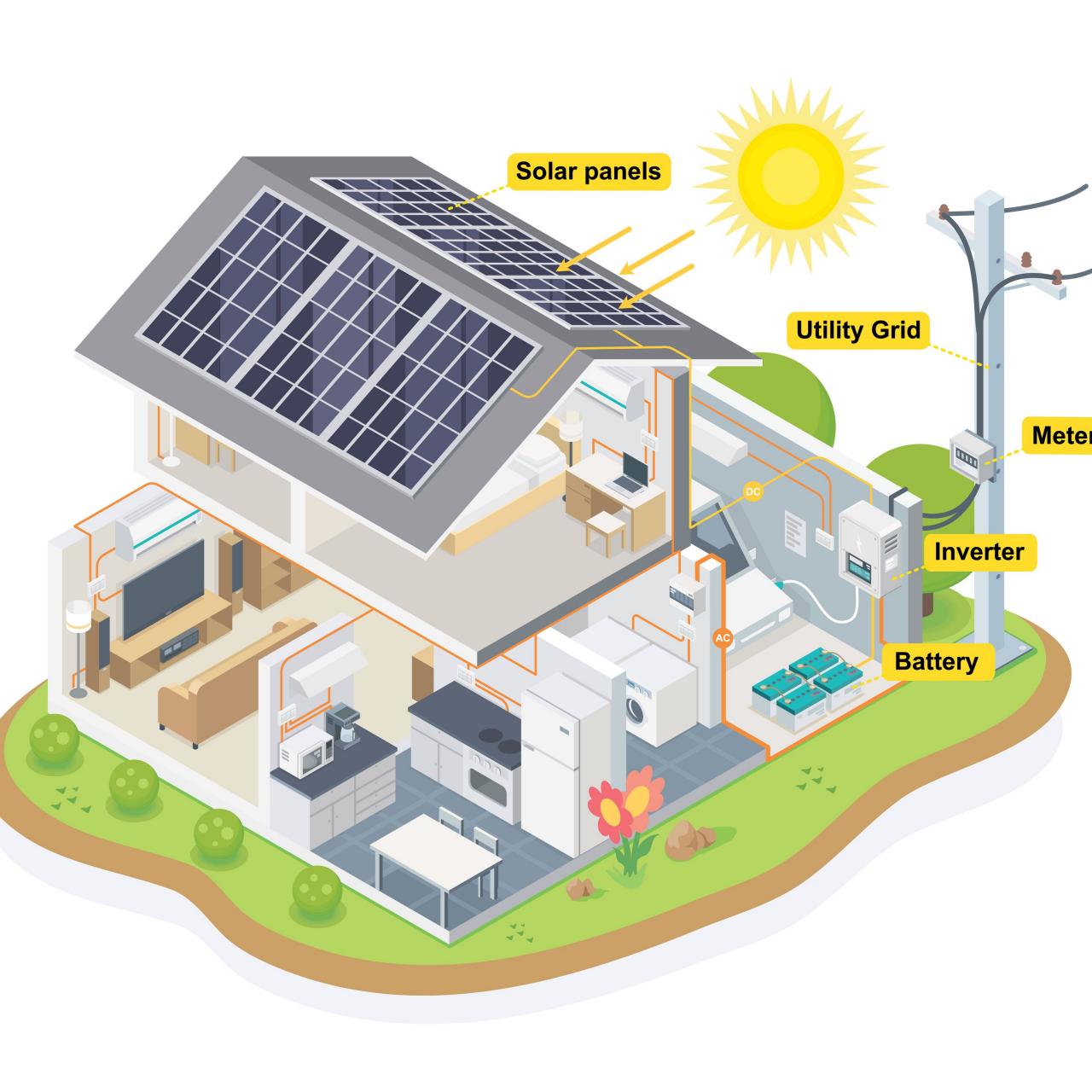Solar Brilliance: Elevating Home Power with Panels

Elevating Home Power: The Brilliance of Residential Solar Panels
Residential solar panels have emerged as a transformative technology, offering homeowners a sustainable and efficient way to generate their own power. This article explores the various aspects of residential solar panels, shedding light on their benefits, installation considerations, and the positive impact they can have on both the environment and household finances.
The Promise of Renewable Power at Home
Residential solar panels harness the abundant energy from the sun, providing homeowners with a renewable and clean power source. This sustainable approach to energy generation reduces reliance on traditional electricity grids and fossil fuels, contributing to environmental preservation and combating climate change.
Financial Advantages of Residential Solar
One of the primary attractions of residential solar panels lies in the financial benefits they offer. While the initial investment in solar panel installation may seem significant, homeowners often experience substantial long-term savings on their energy bills. Additionally, many governments and utilities provide incentives, rebates, and tax credits to further enhance the economic viability of solar installations.
Installation Considerations for Homeowners
The installation of residential solar panels involves careful consideration of various factors. These include assessing the home’s solar potential, determining the optimal placement and angle for panels, and evaluating the available roof space. Working with professional installers ensures that the system is customized to the specific needs and conditions of the residence.
Grid-Tied vs. Off-Grid Systems
Homeowners can choose between grid-tied and off-grid solar systems. Grid-tied systems are connected to the local electricity grid, allowing excess energy to be fed back into the grid in exchange for credits. Off-grid systems, on the other hand, operate independently and require energy storage solutions, such as batteries, to provide power during periods of low sunlight.
Energy Storage Solutions for Continuous Power
In situations where homeowners seek independence from the grid or want to ensure continuous power during outages, incorporating energy storage solutions becomes crucial. Solar batteries store excess energy generated during sunny periods, making it available for use during cloudy days or at night. This enhances the reliability and self-sufficiency of residential solar systems.
Environmental Impact and Sustainability
Beyond financial considerations, residential solar panels significantly reduce the environmental impact of home energy consumption. By generating clean energy and reducing reliance on fossil fuels, homeowners contribute to lower carbon emissions and help build a more sustainable and ecologically conscious future.
Technological Advancements and Smart Homes
Technological advancements in solar panel technology continue to enhance efficiency and performance. Integrated smart home technologies allow homeowners to monitor and control their solar systems remotely. This not only maximizes energy production but also provides insights into consumption patterns, fostering a more conscious approach to energy use.
Community and Peer Influence
The adoption of residential solar panels often extends beyond individual households. Communities that embrace solar power create a collective impact, influencing neighbors and fostering a culture of sustainability. Peer influence and community-led initiatives play a vital role in accelerating the transition to renewable energy on a broader scale.
Educational Initiatives for Informed Choices
Educational initiatives are instrumental in empowering homeowners to make informed choices about residential solar panels. Providing accessible information about the benefits, installation process, and financial aspects of solar power encourages more individuals to explore this sustainable and cost-effective energy solution.
Empowering Homes with Solar Brilliance
In conclusion, residential solar panels represent a transformative and empowering technology that allows homeowners to take control of their energy production. From financial savings to environmental stewardship, the brilliance of solar power is illuminating homes across the globe. Explore more about Residential Solar Panels at SolarHelp.info for a comprehensive guide on elevating home power through sustainable solutions.
Harvesting Sunshine: Residential Solar Panels Unveiled

Harvesting Sunshine: Unveiling the Power of Residential Solar Panels
Harnessing solar energy through residential solar panels has become a transformative way for homeowners to contribute to a sustainable future. In this article, we delve into the various aspects of residential solar panels, exploring their benefits and the positive impact they can have on both the environment and household finances.
1. The Rise of Residential Solar Panels: A Green Evolution
Residential solar panels have witnessed a remarkable surge in popularity as homeowners increasingly recognize the environmental and economic advantages they offer. This green evolution signifies a shift towards clean and renewable energy sources, with solar panels becoming a symbol of sustainable living.
2. Energy Independence at Home: Powering Your Own Space
One of the primary benefits of residential solar panels is the attainment of energy independence. By generating electricity on-site, homeowners can reduce their reliance on traditional power grids. This not only provides a more stable and reliable energy supply but also insulates homes from grid outages or disruptions.
3. Economic Savings: Reducing Monthly Utility Bills
A compelling incentive for homeowners to invest in residential solar panels is the potential for significant economic savings. Solar panels convert sunlight into electricity, effectively reducing or even eliminating monthly utility bills. Over time, the initial investment in solar technology proves to be a wise financial decision, offering a tangible return on investment.
4. Environmental Impact: Reducing Carbon Footprints
By opting for residential solar panels, homeowners actively contribute to the reduction of carbon footprints. Solar energy is a clean and renewable resource that produces electricity without emitting harmful pollutants or greenhouse gases. This choice aligns with a commitment to environmental stewardship and plays a crucial role in mitigating climate change.
5. Technological Advances: Efficiency and Accessibility
Advancements in solar technology have significantly increased the efficiency and accessibility of residential solar panels. Improved designs, higher conversion rates, and user-friendly interfaces make solar power systems more practical and attractive for a broader range of homeowners. The integration of smart technologies further enhances their performance and usability.
Residential Solar Panels: Paving the Way to Sustainable Living
To explore how you can harness the power of residential solar panels for your home, visit Residential Solar Panels. This comprehensive resource provides valuable insights and guidance on adopting solar energy, making the transition to a more sustainable and energy-efficient home seamless.
6. Government Incentives: Making Solar Adoption More Attractive
Many governments offer incentives to encourage the adoption of residential solar panels. These incentives can include tax credits, rebates, and feed-in tariffs, making the initial investment more accessible and financially appealing for homeowners. Exploring available incentives can significantly enhance the feasibility of transitioning to solar power.
7. Increased Property Value: A Home Investment
Beyond economic savings and environmental benefits, residential solar panels can increase the overall value of a property. Solar-equipped homes are often perceived as more attractive in the real estate market, offering a unique selling point for environmentally conscious buyers. This investment in solar technology can yield returns not only in the short term but also in the long-term value of the property.
Conclusion: A Sustainable Future Powered by the Sun
In conclusion, residential solar panels emerge as a key player in the transition towards a sustainable and eco-friendly future. From energy independence and economic savings to environmental impact and increased property value, the benefits are diverse. By choosing to harness the power of the sun, homeowners can contribute to a brighter and more sustainable tomorrow.
